IN2PAST’s TL1 advances the use of science and technology to ensure the sustainable preservation, dissemination, and management of tangible and intangible, movable and immovable heritage.
By integrating interdisciplinary approaches that adopt a holistic view of heritage – combining social sciences with invasive and non-invasive scientific analysis, along with digital surveying – valuable data is generated. This data drives various applications, including the creation of digital twins and the use of AI, enabling predictive models that enhance the preservation, dissemination, and management of cultural heritage.
Aligned with contemporary scientific and societal priorities, TL1 aims to establish best practice guidelines for conservation and restoration methodologies, contributing to the development of informed policies for heritage preservation and management.
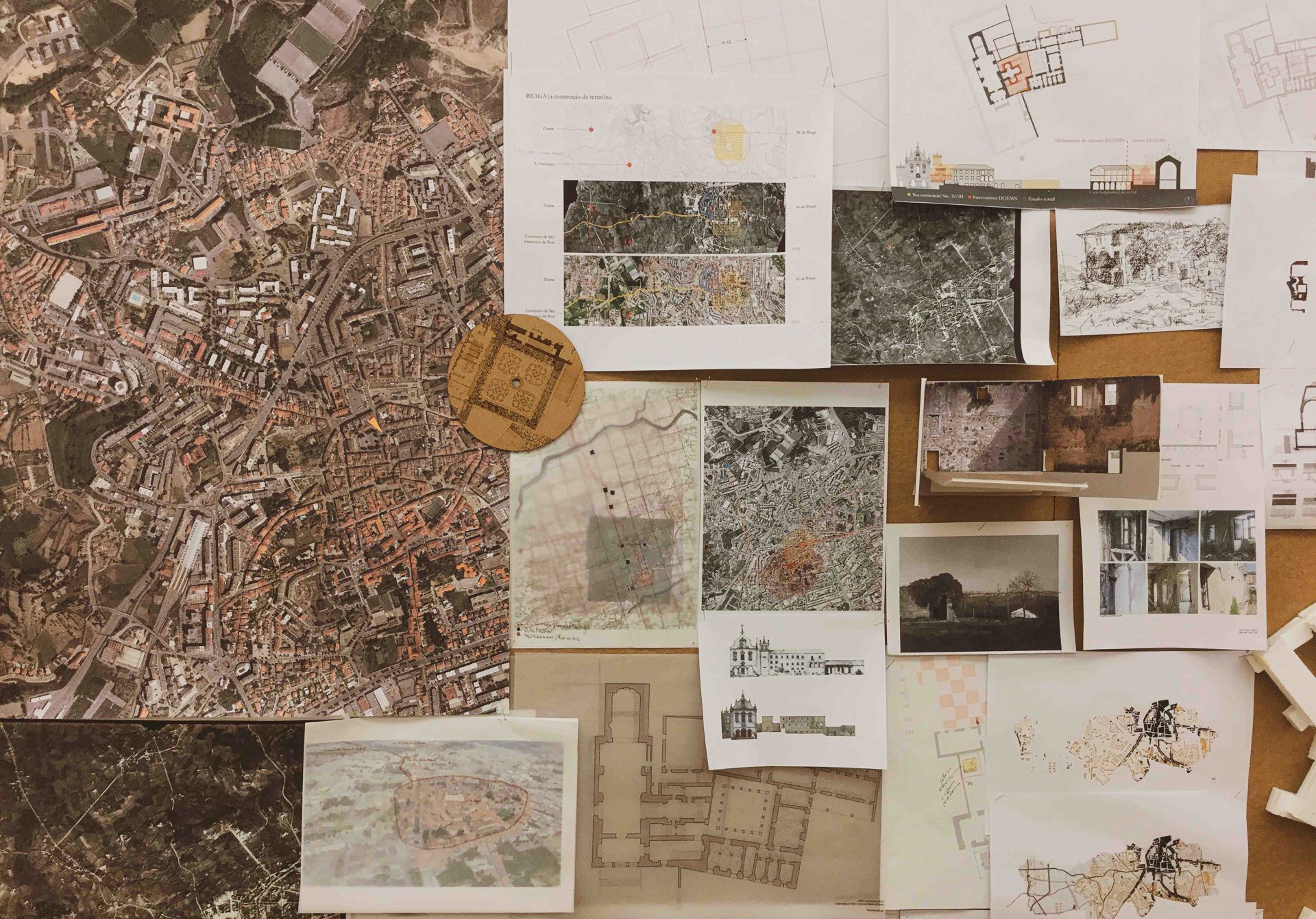
Legenda
© Lab2PT
This thematic line promotes fundamental, applied and transversal research, and draws on the interdisciplinary composition of the different IN2PAST R&D units. It promotes social cohesion, and territorial and demographic balance through the valorisation of heritage, landscapes and social innovation.
The capacity of the R&D units will be used to analyse, interpret and enhance the landscapes and their ecological and cultural landmarks as heritage resources that can foster economic and social development. We contribute from the study of the past to the construction of the present and the future through heritage as a cultural resource.
Our major subthematic areas are: 1. Heritage, Memory and Societal Challenges; 2. Representation of Heritage, New Technologies and Transformation of the Territory; 3. Natural, Rural and Urban Heritage, Communities and Sustainability; 4. Cultural landscapes as heritage and future.
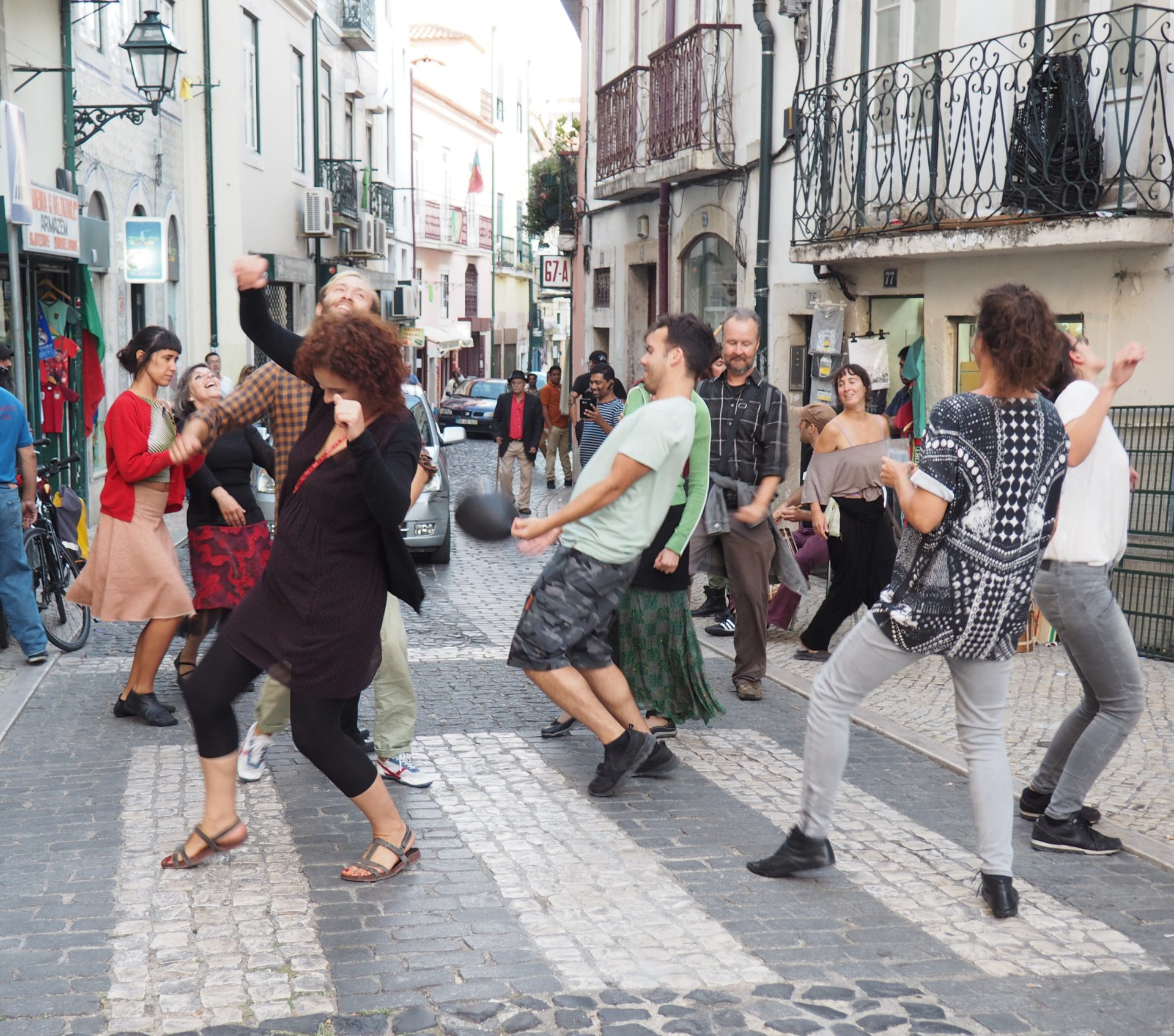
Being with the body in space, sensory group experimentation and movement in the urban landscape. ‘Pedras Festival’, by the artistic collective c.e.m (Centro em Movimento), Mouraria, Lisbon, 2017. © Ana Moya
Thematic Line ‘Museums, Monuments and their Collections’ promotes reflection and analysis on the challenges posed to cultural research and exhibition practices.
Guided by IN2PAST’s multidisciplinarity, it favours collaborative initiatives between researchers, cultural institutions and society, seeking to mitigate territorial asymmetries and to produce an integrated knowledge of heritage, aware of issues of diversity, artistic practice, materiality, ethics and sustainability.
Aligned with current scientific and societal agendas, it stimulates critical thinking about collection procedures, classification and display of artefacts, and considers the digital turn as a tool for action in the areas of conservation, documentation and research of cultural objects.
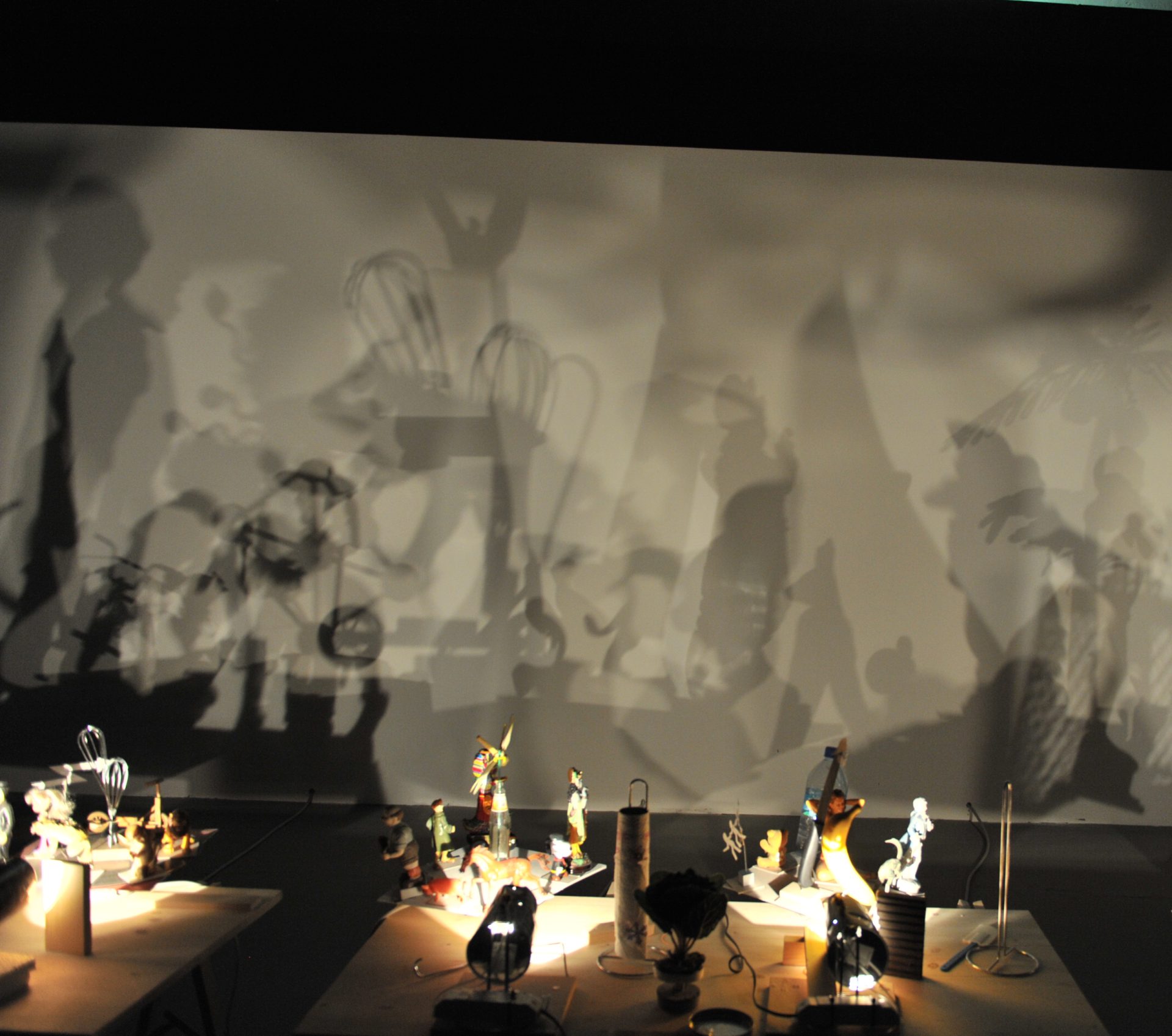
‘Shadow Play’, by Hans-Peter Feldmann. © Julian Stallabrass
TL4 aims to diagnose the national archival reality and develop public policy and applied research strategies in the following areas:
1) Reflection on legislation in the field of archives, including policies on access to information;
2) Analysis of practices for safeguarding, processing and studying public and private archives, historical archives and performing arts archives;
3) Discussion of preventive preservation and digitisation, including the management and interoperability of physical and digital archives;
4) Assessment of the environmental, technological and financial sustainability of archives;
5) Reflection on the risks of memory loss resulting from the exclusion of documentary funds or collections from existing or future archives.
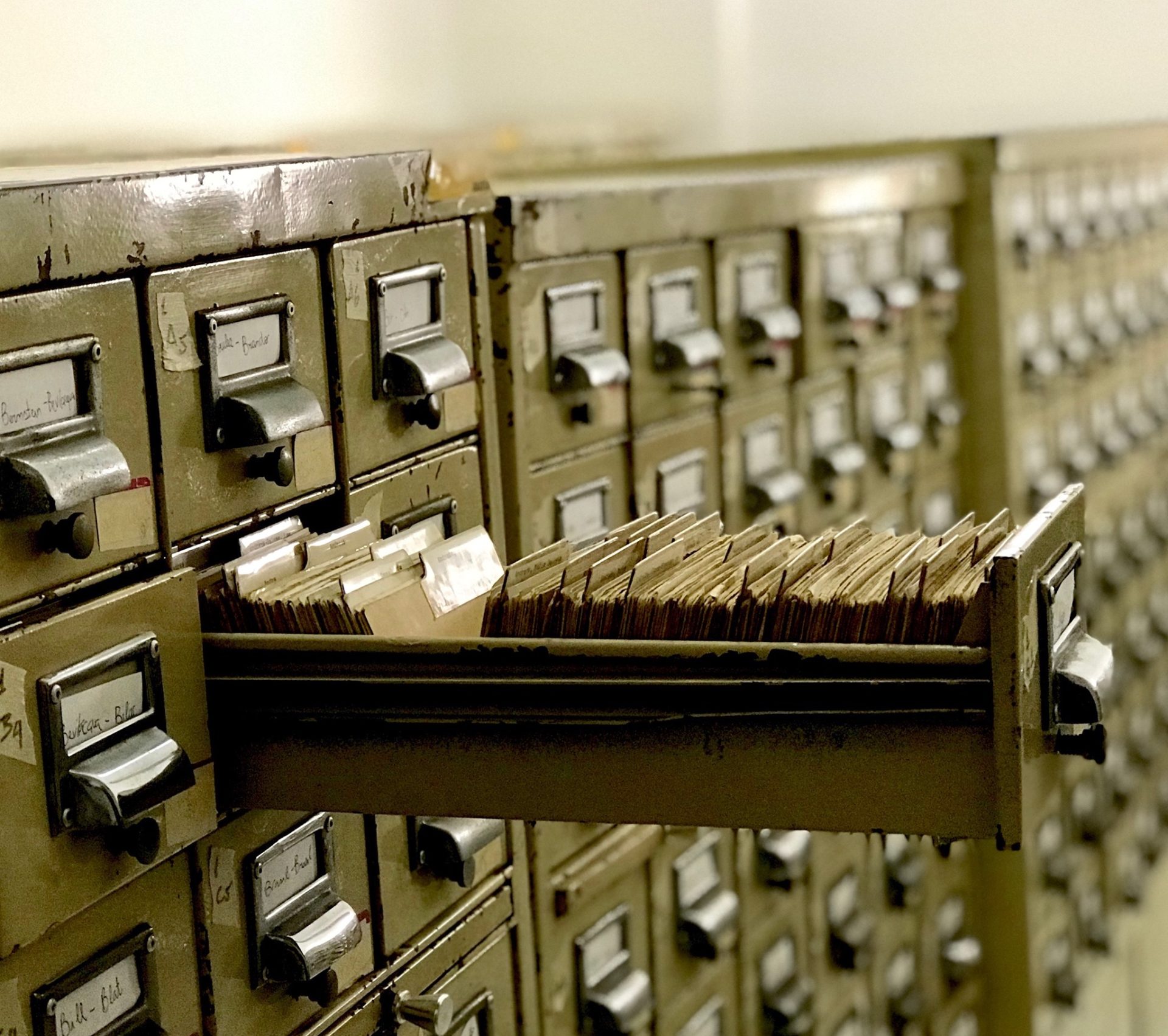
Legenda
© Autor
The global increase in cultural circulation and competing uses of the past raises new issues concerning the making of social identities and memories. Encompassing cultural, political and scientific threads of research, this thematic line aims to discuss and critically promote inclusive societies, including Portugal’s colonial and anti-colonial legacies, as well as its current forms of exchange with the Global South.
TL5 will focus on three major areas of research: 1) Promoting critical forms of historical memory, including the role of citizenship in the memorialization of violent pasts; 2) Translating inclusive citizenship into the making of diasporic archives developing more pluralistic transnational memories, including popular culture; 3) Inserting Portuguese state policies in international debates on difficult memories, ranging from ongoing work on the memory of fascism and other forms of authoritarianism to the memories of colonial violence and anti-colonial struggles.
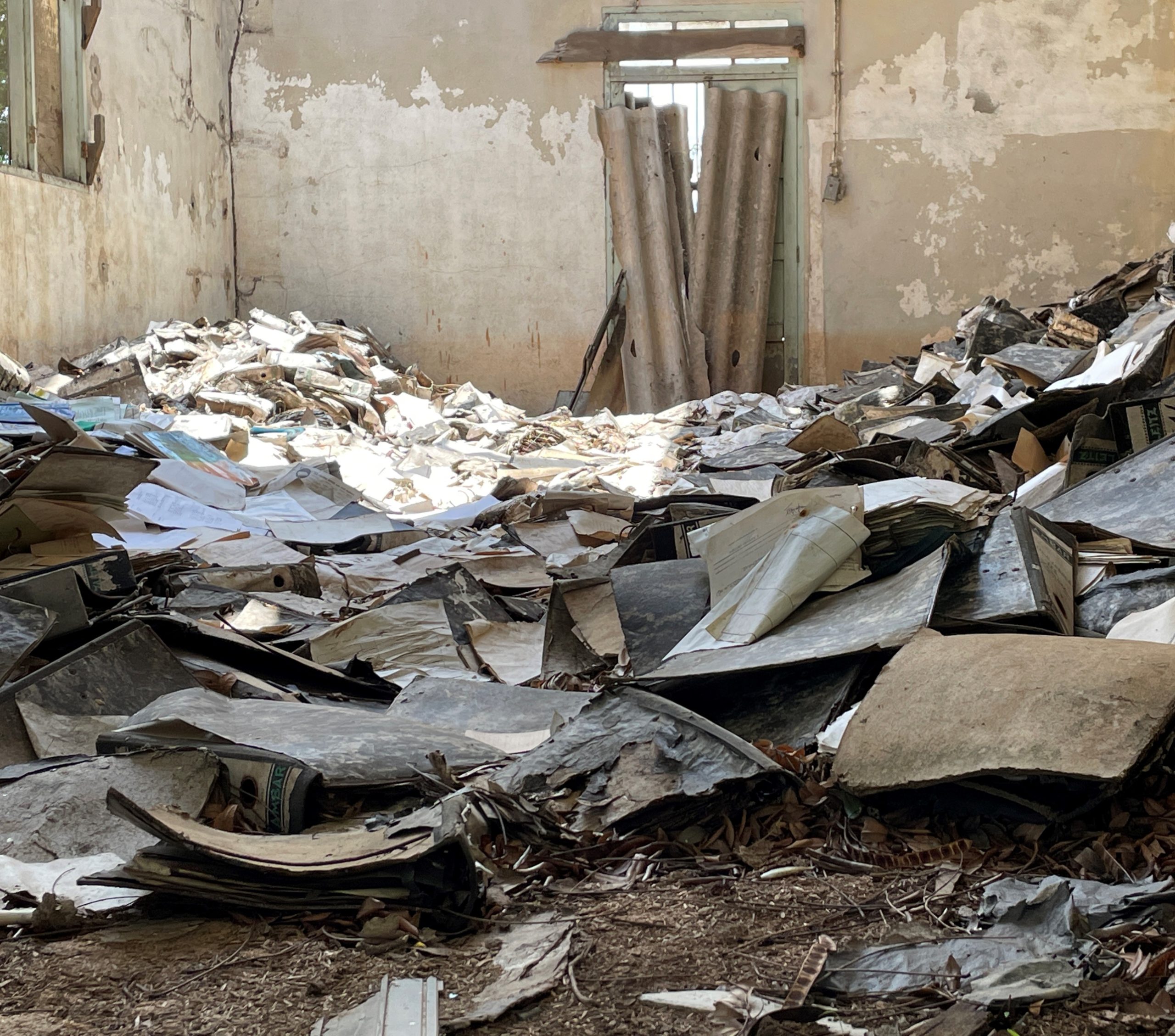
Photo of the ‘archive’ of the former Companhia do Búzi in Beira, Mozambique. © Ruy Llera Blanes
What are contact points?
The RU’s points of contact/ contact points for each TL are integrated PhD researchers who are responsible for acting as an interface between their RU and a specific TL, and vice versa, which means receiving and responding to requests for information, exchange of communications or other types of support.
The contact points are named by the Boards/Coordinators/Scientific Councils or other competent bodies of the RUs, using a method determined by them.
The contact points fulfil intermediary functions.
How does it work?
The RU’s contact points are the people at your RU who you should get in touch with regarding any questions related to each Thematic Line in particular. They are also the people who take IN2PAST issues relating specifically to each Thematic Line to their respective RUs (Boards, Coordinators and other relevant forums).
Example 1: Peter is from CRIA and has heard about an activity organised within TL1 that interests him, but he cannot find information about it; he should send an email to Paulo Mendes and/or Francisca Alves Cardoso.
Example 2: Paul is from IHA and is assembling a team for a new project which he thinks contributes to TL3 and TL4, but he is not sure; he should write to Patrícia Roque Martins and/or Adelaide Duarte, as well as Mariana Pinto dos Santos and/or Bruno Marques.
Example 3: Mary has just joined the HERCULES team and seems to have a research agenda that particularly fits in with TL2; Patrícia Moita and Carlo Bottaini should put her in touch with Rebeca Blanco-Rotea and Ana Moya.
Example 4:Luís Trindade and/or Ruy Llera Blanes, TL5 coordinators, are looking for information, support or specific suggestions about or from CESEM. They should contact Paula G. Ribeiro and/or João Pedro Cachopo directly, without going through the IN2PAST Board, science management team, or the CESEM Board/Coordination.
Complete table of the research units’ contact points for each TL
Page updated on 06/06/2025
2025 © IN2PAST. All rights reserved.
IN2PAST – Associate Laboratory for Research and Innovation in Heritage, Arts, Sustainability and Territory is funded by FCT – Fundação para a Ciência e a Tecnologia, I. P. under reference LA/P/0132/2020 (DOI 10.54499/LA/P/0132/2020)